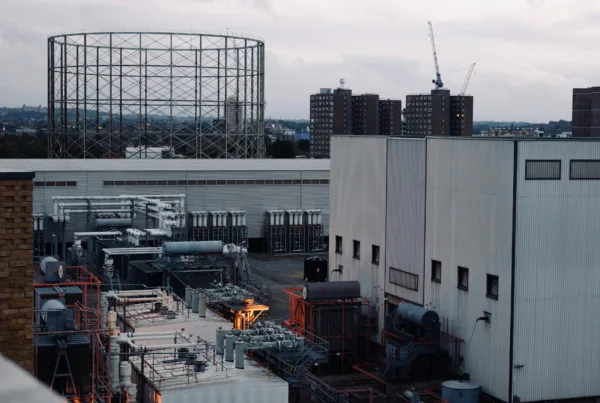This Wednesday, October 30, 2024, Chancellor Rachel Reeves is set to deliver the Labour government’s first Budget.
With a new political landscape unfolding, business owners, investors, and property developers are anticipating one of the biggest tax-raising budgets of recent times. However, the key question remains: where will these tax hikes fall? Central to Labour’s summer manifesto is a commitment to shield working people from increases in income tax, national insurance, and VAT. This pledge places the onus of tax increases on other areas.

One area we believe won’t be affected is the 2001 Capital Allowance Act—a crucial mechanism designed to promote investment and stability within the UK economy. The Capital Allowance Act has been widely praised as a tool for supporting growth by offering substantial tax relief to commercial property owners and businesses that invest in new infrastructure.
With economic resilience at stake, Capital Allowances will likely remain an essential pathway to savings, safeguarding UK businesses amidst broader tax changes and fiscal shifts.
1. A Critical Tax Relief Mechanism
The Capital Allowance Act is one of the most significant tax relief mechanisms in the western world, and it gives the UK a direct competitive advantage. By allowing businesses to deduct qualifying expenditures on assets, it supports investments in innovation and sustainability.
Reducing or altering this mechanism could undermine the UK’s standing in the global market, especially as we compete with other European nations that have similarly attractive tax relief systems.
Without capital allowances, businesses may face higher tax burdens on their investments in critical infrastructure, equipment, and technology. According to the Federation of Small Businesses, “The current system encourages long-term investment by reducing the initial cost of major purchases” – a sentiment echoed by many across the political spectrum.
2. Supporting Investment in Business
Capital allowances fuel business investments. Whether it’s a manufacturer investing in new machinery or a high street storefront upgrading its internal fit out, these allowances reduce the tax burden and encourage capital deployment. Businesses need this cushion, especially in the uncertain economic times we’ve faced in recent years.
A key example of this is the Annual Investment Allowance (AIA), which allows companies to claim 100% relief on qualifying plant and machinery up to £1 million. This relief is crucial to fostering business growth, particularly for SMEs. As Labour has emphasised its commitment to small businesses, maintaining the AIA in its current form would be aligned with this goal.
As Sir Keir Starmer has noted, “Businesses are the backbone of our economy.” Cutting capital allowances would only stifle the investment that drives innovation and productivity.
3. Job Creation and Re-Employment
Capital allowances do more than just assist with tax deductions—they help businesses grow, which in turn creates jobs. When businesses invest in new technologies, facilities, and tools, they often need to hire more workers and ancillary businesses to manage that growth.
The Confederation of British Industry has warned that cutting business incentives could have severe repercussions on employment. Capital allowances have been pivotal in industries such as construction, manufacturing, and technology—sectors that are vital to the UK economy and its workforce. At a time when re-employment and upskilling are key Labour promises, retaining capital allowances will ensure that businesses have the resources to bring more jobs back to the UK.
4. Stimulating the Commercial Property Sector
The UK commercial property market is under immense strain, and capital allowances are a vital tool for revitalising this critical sector for UK tax payers. With high interest rates and economic uncertainty, capital allowances act as a necessary buffer to local land owners, enabling them to offset the costs of improvements and repairs, especially for energy-efficient upgrades.
As the Royal Institution of Chartered Surveyors (RICS) has highlighted, “Capital allowances offer a financial lifeline during turbulent times in the commercial real estate sector, allowing property owners to generate substantial tax savings and remain competitive.” Reducing or removing this tax relief would hinder recovery in this already fragile sector and limit future growth.
Increased investment in sustainable buildings, driven by capital allowances, can help move the needle towards the government’s net-zero goals, reducing the burden to the private sector. With the construction industry heavily reliant on this relief, it would be ill-advised to tamper with a system that simultaneously fosters environmental progress and economic resilience.
5. Maintaining the UK’s Global Competitiveness
As we have experienced the impact of an increasingly globalised economy post-Brexit and post-COVID, the UK must remain an attractive destination for domestic investment. A strong and stable tax relief system that fosters growth is essential to that equation.
Rachel Reeves, in her Labour Party Conference Speech, emphasised the need for “a pro-business, pro-worker approach that drives growth and boosts productivity.” If Labour is serious about keeping the UK competitive on the world stage, protecting the Capital Allowance Act is a must.
Don’t Fix What Isn’t Broken
In short, capital allowances are now, more than ever, a necessary tax relief mechanism for business investment, job creation, and economic growth across the UK. They also ensure the health of critical sectors such as commercial real estate and manufacturing, supporting businesses both large and small.
As Chancellor Reeves prepares the first Labour Budget, the government should focus on enhancing this system—not dismantling it.
We eagerly await this budget and look forward to providing our analysis in the coming days.




